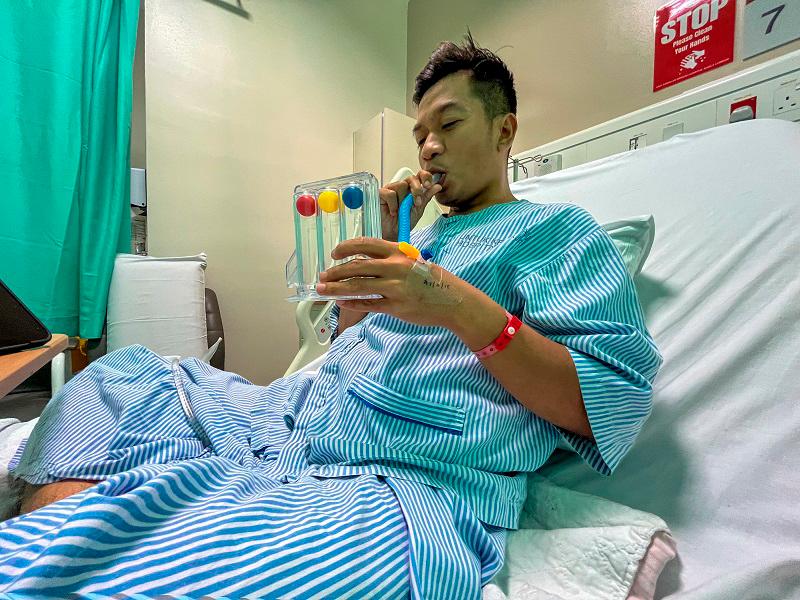KUALA LUMPUR: For father and son Ayub Abdul Ghani, 61, and Dr Mohamad Zulkifli, 28, Nov 19 will always remain in their minds as
the day their bond transcended everything else and manifested in its truest form.
Their ordeal started years earlier when Mohamad Zulkifli was diagnosed with stage five kidney failure and had to spend the next four years on haemodialysis.
Seeing his son suffering, Ayub made the love driven decision to help. The act gave Mohamad Zulkifli a second chance to live a near-normal life and stands as a powerful example of parental sacrifice.
Mohamad Zulkifli’s journey with kidney failure began when he turned 24 years old. The next four years of his tertiary education at the International Islamic University of Malaysia in Kuantan, Pahang involved haemodialysis.
Eventually, the Sultan Haji Ahmad Shah Medical Centre in Kuantan changed this to peritoneal dialysis, which is done at home.
“I was diagnosed with stage five kidney failure while pursuing my medical degree. I felt a sense of despair upon learning that I needed to undergo haemodialysis. Soon, I was admitted to the hospital. When I first started on haemodialysis, I felt lethargic and dizzy but the symptoms settled down in time,” said Mohamad Zulkifli, adding that his late mother was also diagnosed with kidney failure and underwent haemodialysis for five years before her death.
So, it came as no surprise that Ayub was devastated by his
son’s struggle and dependence
on dialysis.
“Seeing him suffering was heartbreaking. After doctors explained the risks and benefits of the transplant, I had no hesitation to donate a kidney to him.”
As a smoker, Ayub said it was not easy to quit the habit, especially since he had been smoking since his 20s.
“The process was difficult and required a lot of effort and motivation, especially from my family and doctors. It took time but I knew I had to do it.”
On Nov 19, Mohamad Zulkifli had his transplant performed by surgeons at the Kuala Lumpur Hospital. This marked a turning point in his life, putting an end to travelling back and forth between Kuantan and Kuala Lumpur for medical appointments.
“I am grateful to have been given a second chance at life,” he said, reflecting on how the transplant
has given him hope of living a normal life.
For Ayub, his experience with the transplant forced him to quit cigarettes and become a strong supporter of the anti-smoking lobby.
“Quit smoking for your own sake and the well-being of those around you. It is never too late to make a change. I feel far healthier today after quitting cigarettes than I have ever felt.
“I also feel a tinge of sadness that my son’s kidney failure was what prompted me to decide to finally give up cigarettes.”
Not everyone is blessed to have a transplant in Malaysia as the gap between supply and demand for organs is notably large.
Data from the Malaysian Society of Transplantation (MST) showed that 9,608 child and adult patients are on the waiting list, with the highest demand being for kidneys.
Only 3,250 transplants have been carried out since 1975. Over the past 10 years, Malaysia performed between 80 and 180 kidney transplants a year, with living donors making up between 70% and 80% of the transplants.
MST vice-president and Hospital Kuala Lumpur transplant nephrologist Dr Mohamad Zaimi Abdul Wahab said about 382,020 individuals have pledged their organs, with the majority aged between 20 and 39.









